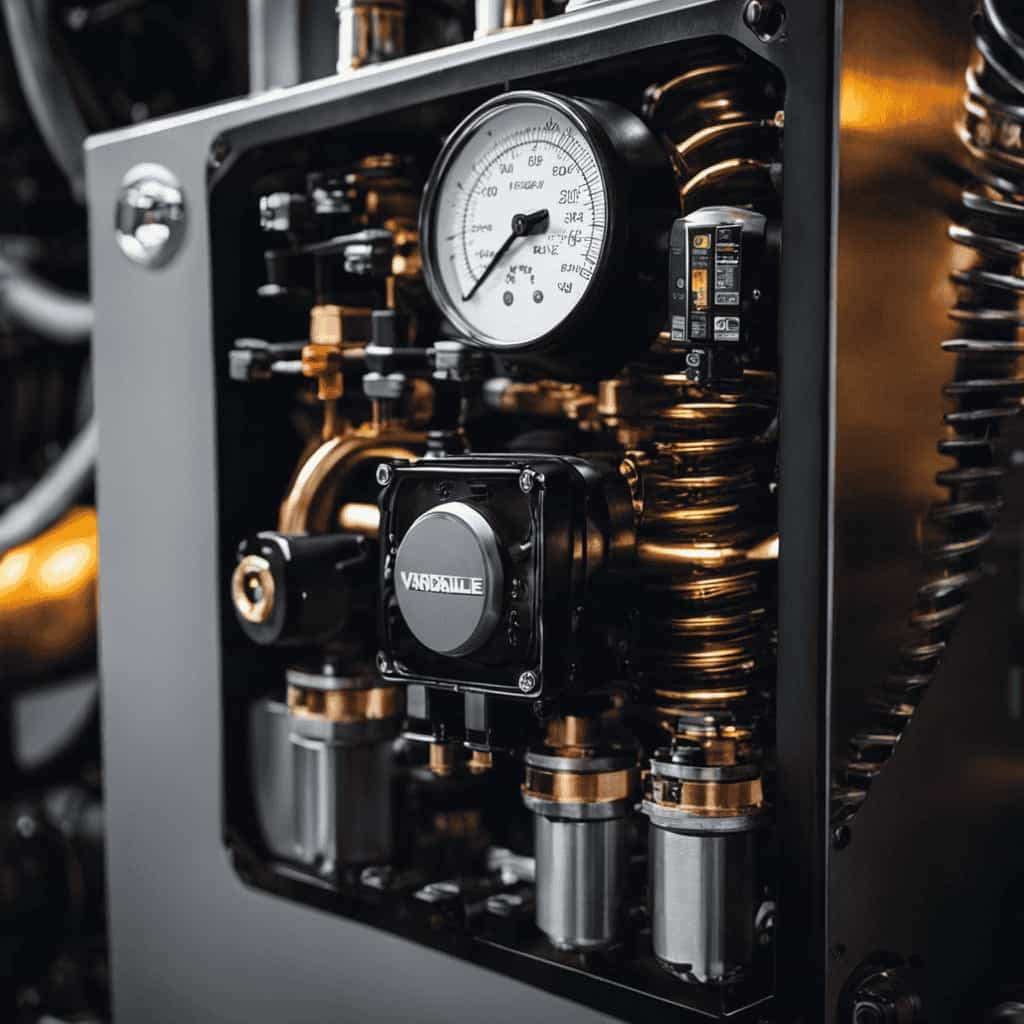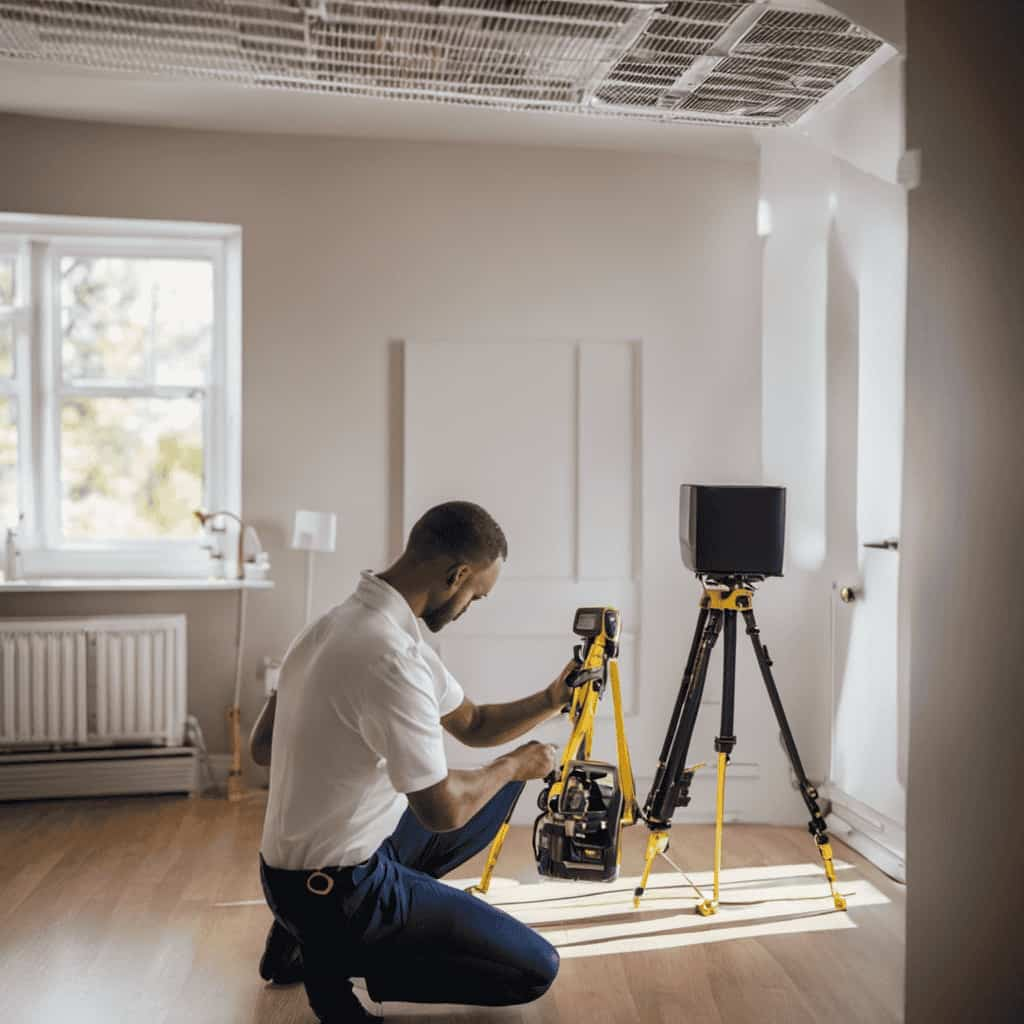Get the inside information on how to troubleshoot HVAC heat pumps with our 13 crucial tips. You’ll learn to identify and resolve frequent problems like an expert.
From checking power and thermostat functionality to evaluating refrigerant levels, we’ve got you covered.
Whether your heat pump is cycling on and off or not heating/cooling properly, we’ve got the solutions.
And if all else fails, we’ll guide you on seeking professional help and offer maintenance tips for long-lasting performance.
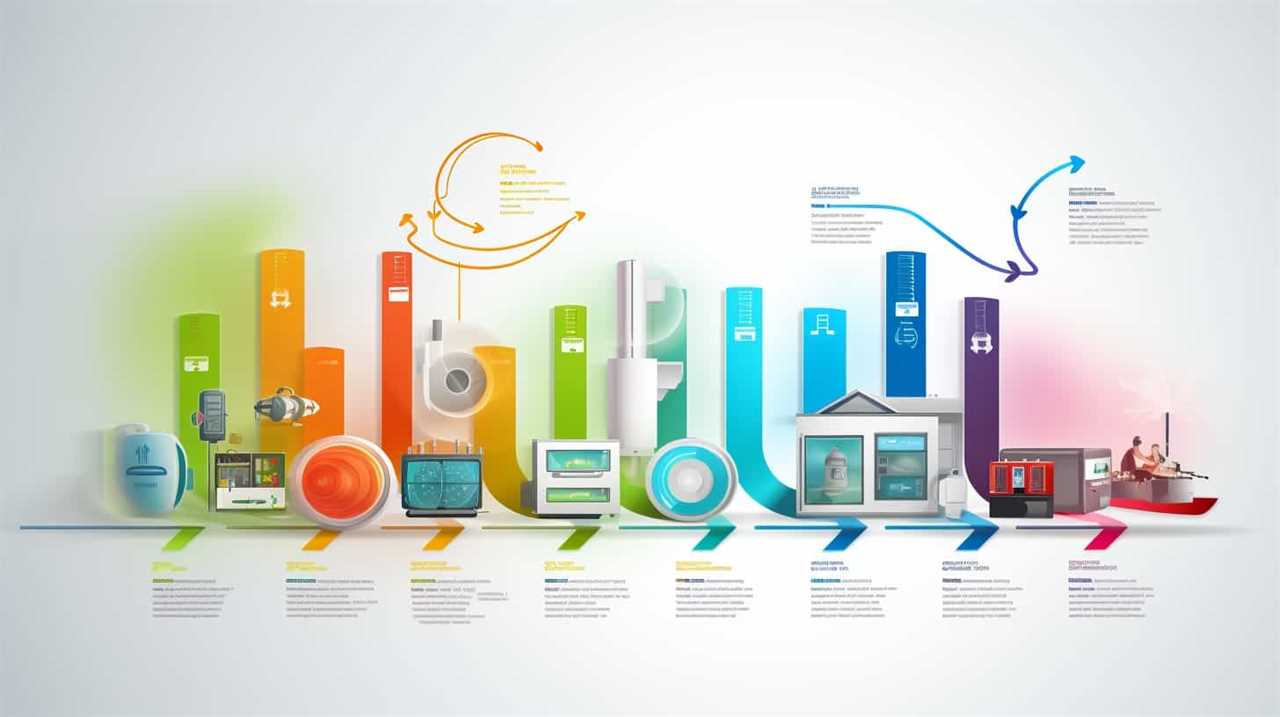
Get ready to conquer any heat pump problem!
Key Takeaways
- Regular maintenance is crucial for troubleshooting power and electrical issues.
- Testing voltage and current is necessary to ensure proper functioning.
- Assessing thermostat functionality is important for heat pump troubleshooting.
- Cleaning air filters regularly is essential for extended system lifespan and improved indoor air quality.
Understanding the Basics of HVAC Heat Pumps
Let’s start by breaking down the basics of HVAC heat pumps. Understanding heat pump efficiency is crucial for troubleshooting common heat pump errors.
Heat pumps are designed to transfer heat from one place to another, providing both heating and cooling functions. They work by extracting heat from the air or ground and transferring it indoors or outdoors, depending on whether you need heating or cooling.
Heat pump efficiency is measured by the coefficient of performance (COP), which indicates the ratio of heat output to the amount of energy input. A higher COP means better efficiency.

Common heat pump errors include insufficient heating or cooling, noisy operation, and frequent cycling.
Checking for Power and Electrical Issues
When troubleshooting HVAC heat pump issues, it’s crucial to first check for power supply problems and electrical connection issues.
We need to ensure that the heat pump is receiving the necessary power to function properly. By testing the voltage and current, we can determine if there are any electrical faults that may be causing the problem.
Power Supply Problems
We need to check the power supply for any issues or problems that may be affecting the HVAC heat pump. Power supply troubleshooting is an essential step in heat pump troubleshooting, as common power supply issues can cause the HVAC system to malfunction or not work at all.
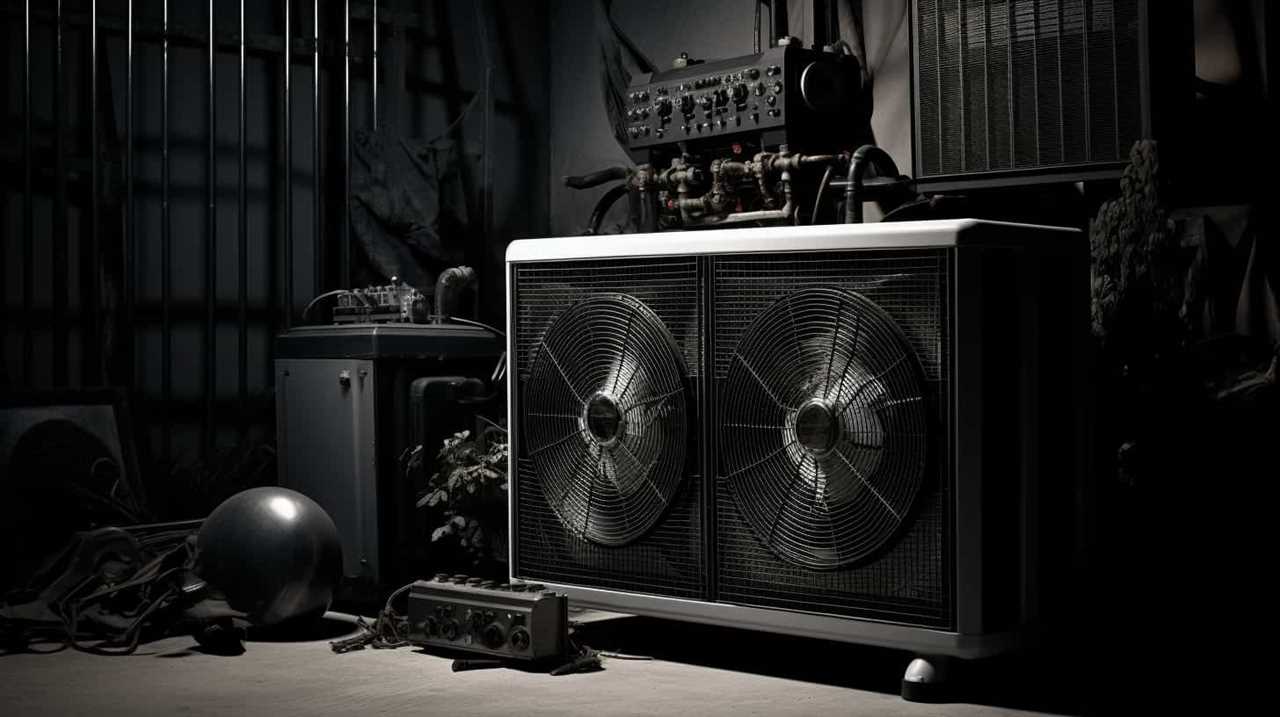
Here are some common power supply issues to look out for:
Tripped circuit breaker: A tripped circuit breaker can disrupt the power supply to the heat pump. Check the circuit breaker panel and reset any tripped breakers.
Blown fuse: Similar to a tripped circuit breaker, a blown fuse can also interrupt the power supply. Inspect the fuses in the disconnect box and replace any blown fuses.
Loose electrical connections: Over time, electrical connections can become loose, leading to poor power supply. Check all electrical connections and tighten any loose ones.
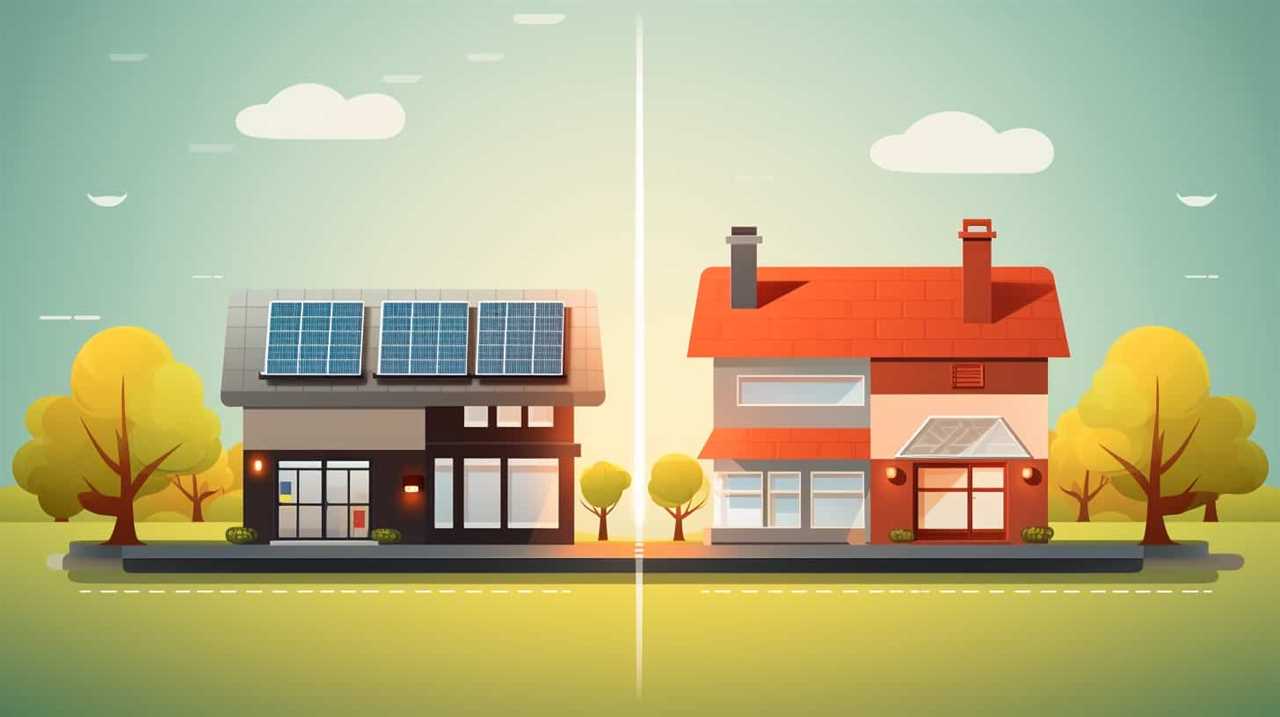
Faulty thermostat: A faulty thermostat can prevent the heat pump from receiving the necessary power signals. Test the thermostat and replace it if necessary.
Electrical Connection Troubleshooting
Do we know if there are any power or electrical issues that could be affecting the HVAC heat pump?
In order to troubleshoot these common electrical issues, it’s crucial to perform regular electrical connection maintenance. The first step is to check the power supply. Ensure that the circuit breaker is on and that there’s power flowing to the heat pump. If there’s no power, check the electrical panel for any tripped breakers or blown fuses.
Additionally, inspect the wiring connections for any loose or damaged wires. Tighten any loose connections and replace any damaged wires as needed. It’s also important to check for any signs of overheating or burning around the electrical connections.
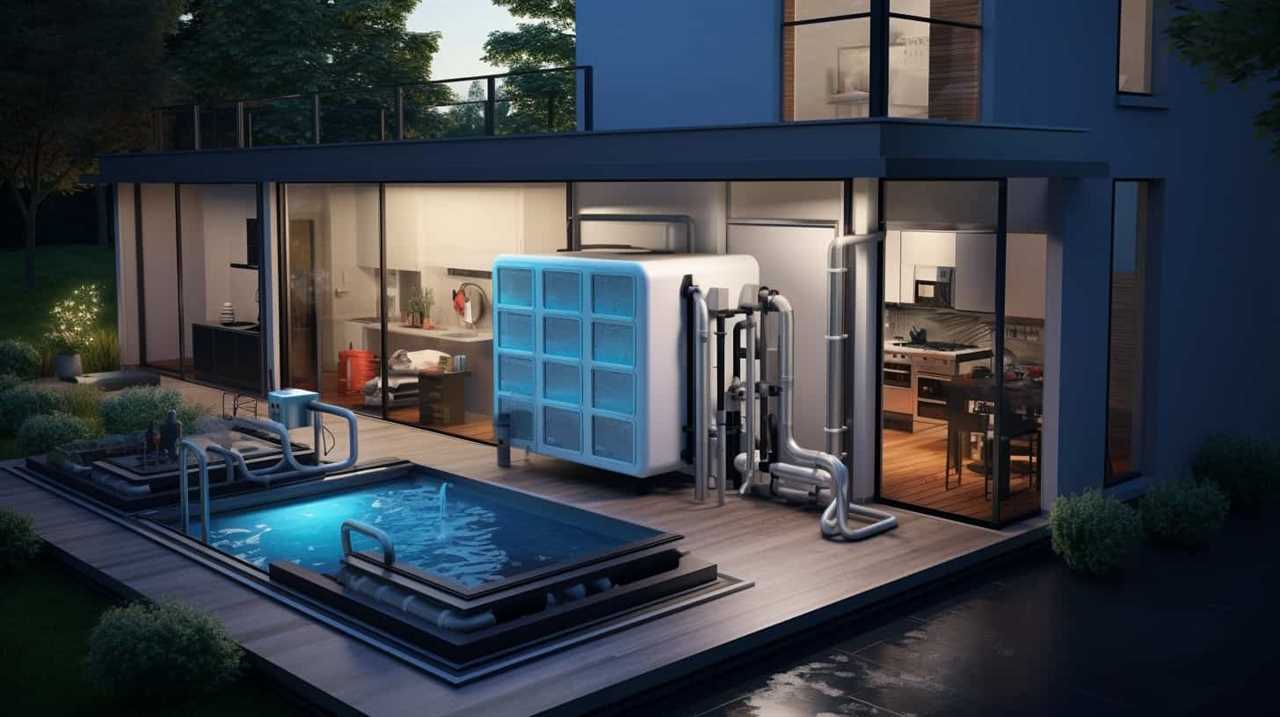
Testing Voltage and Current
After ensuring the power supply is connected, we can begin testing voltage and current to check for any power and electrical issues affecting the HVAC heat pump. Testing voltage and current is crucial in troubleshooting the heat pump as it helps identify any problems related to power supply or electrical components.
Here are four important aspects to consider when conducting voltage and current measurement:
Voltage drop: Measure the voltage drop across different components to ensure they’re receiving the correct voltage. A significant voltage drop may indicate a problem with the wiring or connections.
Current draw: Measure the current draw of the heat pump to ensure it’s within the manufacturer’s specifications. Abnormal current draw could indicate a fault with the motor or compressor.

Continuity: Test for continuity in the electrical circuits to ensure there are no breaks or open circuits. Poor continuity can lead to intermittent or no power supply.
Grounding: Check the grounding of the heat pump system to ensure there’s a proper path for electrical current to flow. Inadequate grounding can lead to electrical hazards and system malfunctions.
Assessing Thermostat Functionality
To accurately assess thermostat functionality, we need to check if the temperature readings are consistent and if the thermostat is responding to changes in temperature settings. Evaluating thermostat performance is crucial in troubleshooting thermostat issues.
Start by verifying that the temperature readings on the thermostat match the actual room temperature. This can be done using a separate thermometer. If there’s a discrepancy, recalibrate the thermostat or replace it if necessary.
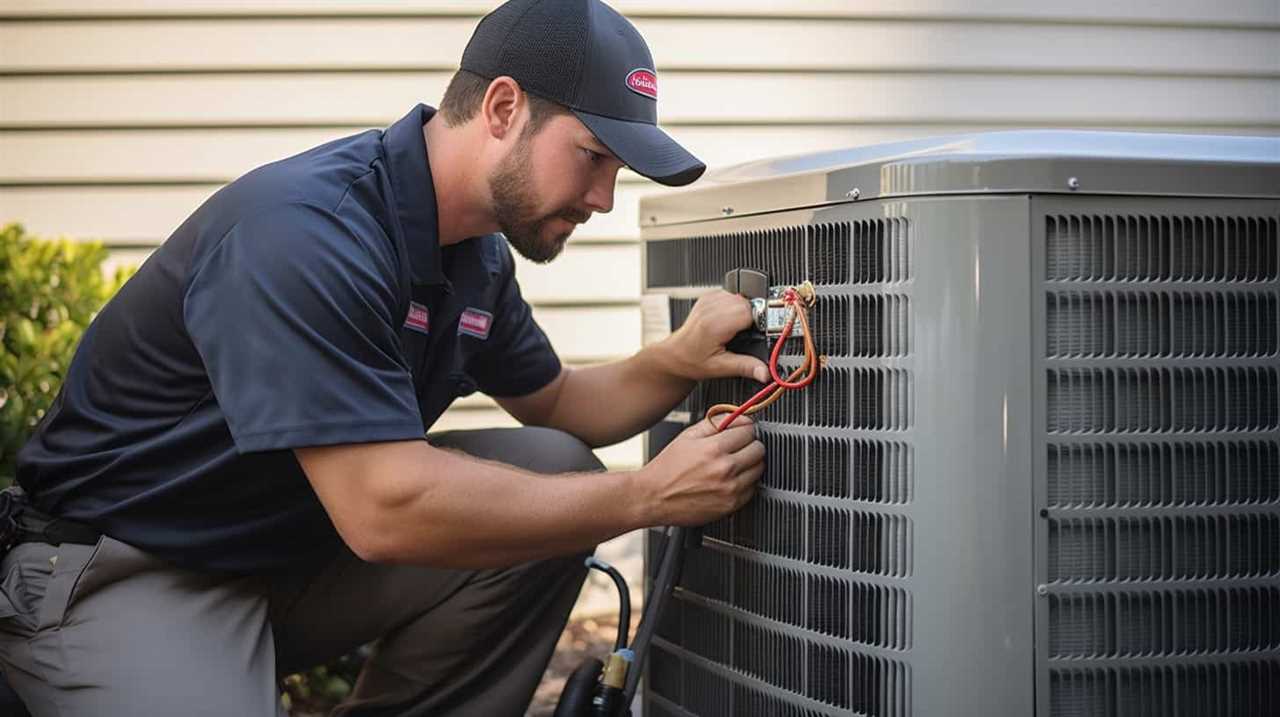
Next, test if the thermostat is responsive to changes in temperature settings. Adjust the thermostat to a higher or lower temperature and observe if the heating or cooling system kicks on accordingly. If there’s no response, check the wiring connections and ensure they’re secure. Additionally, ensure that the thermostat is powered properly and that the batteries aren’t dead.
Inspecting and Cleaning Air Filters
Let’s start by examining and cleaning the air filters in our HVAC heat pump system. Air filter maintenance is crucial for the efficient operation of your system and the overall air quality in your home. Here are some important points to consider:
Regular cleaning: Cleaning the air filters on a regular basis helps prevent dust, dirt, and debris from accumulating and clogging the system. This ensures proper airflow and improves the system’s performance.
Improved indoor air quality: Clean air filters trap allergens, pollutants, and airborne particles, preventing them from circulating in your home. This is especially important for individuals with respiratory conditions or allergies.
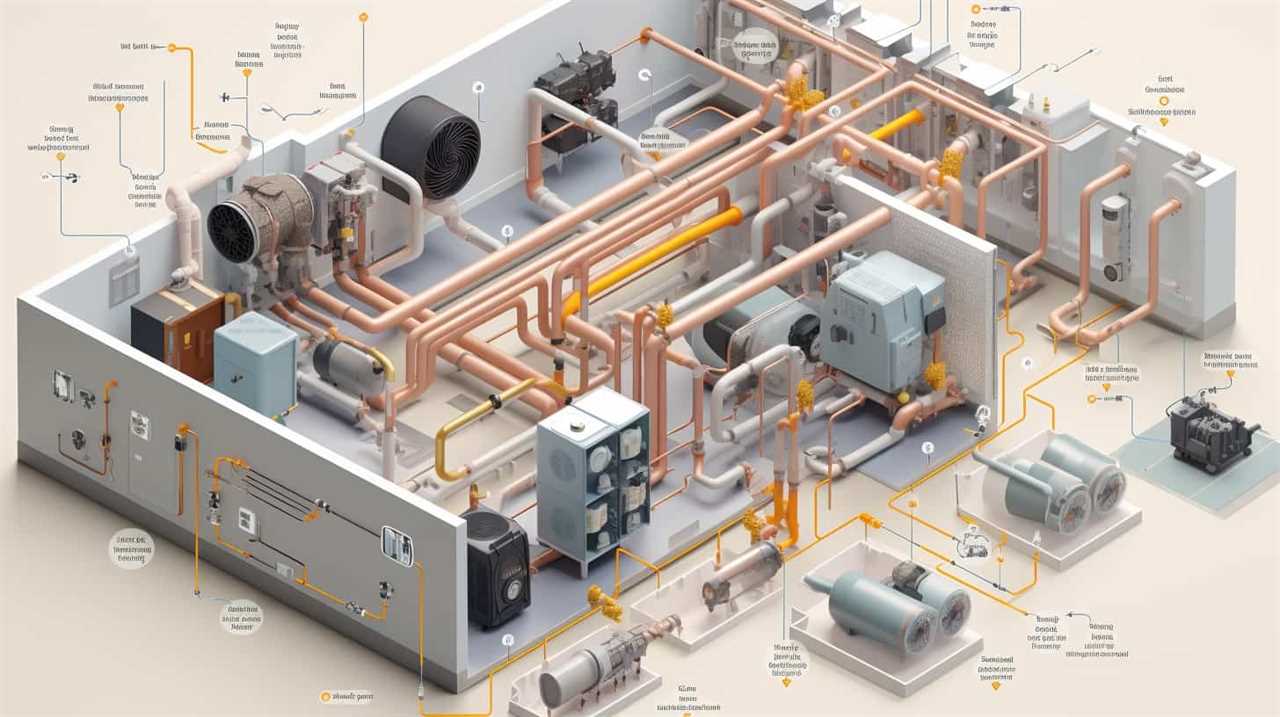
Extended system lifespan: By regularly cleaning the air filters, you reduce the strain on the HVAC heat pump system, increasing its lifespan and preventing costly repairs or replacements.
Energy efficiency: A clean air filter allows the system to operate more efficiently, saving energy and reducing utility bills.
Evaluating Refrigerant Levels
When evaluating refrigerant levels, we should use a pressure gauge to measure the pressure of the refrigerant in the system. This is an important step in troubleshooting HVAC heat pumps because improper refrigerant levels can lead to reduced efficiency and performance issues.
If the pressure is too low, it may indicate a refrigerant leak, which should be addressed promptly to prevent further damage to the system. On the other hand, if the pressure is too high, it could indicate a problem with the defrost cycle.

By evaluating the refrigerant levels, we can identify any potential issues and take the necessary steps to resolve them.
Once we’ve completed this evaluation, we can move on to checking for airflow restrictions, which is another crucial aspect of HVAC heat pump troubleshooting.
Checking for Airflow Restrictions
When troubleshooting HVAC heat pumps, it’s crucial to check for airflow restrictions.
There are several common points to consider: dirty air filters, blocked vents or registers, and an obstructed outdoor unit.
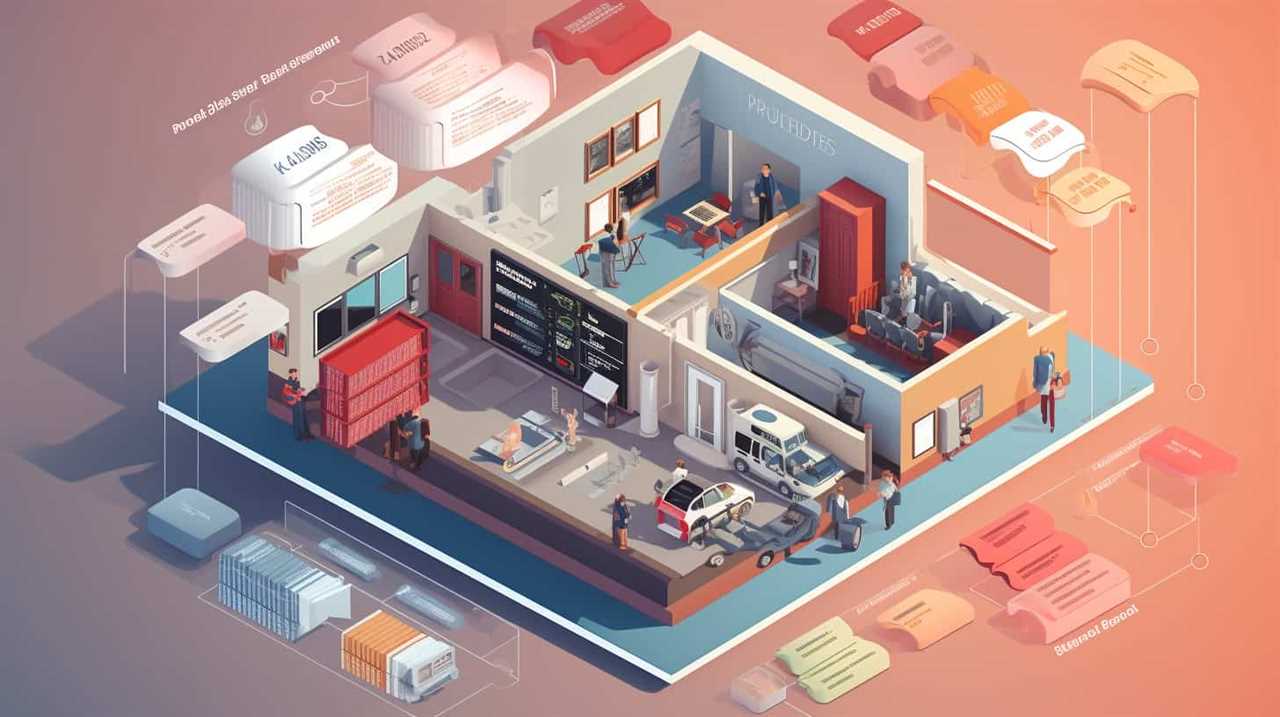
Dirty air filters can restrict the flow of air, leading to reduced efficiency and performance.
Blocked vents or registers can disrupt the airflow throughout the system, causing uneven heating or cooling.
Finally, an obstructed outdoor unit can impede the heat exchange process, resulting in poor heat transfer.
Dirty Air Filters
As we check for airflow restrictions, it’s important to address the issue of dirty air filters. Dirty air filters can significantly hinder the performance of your HVAC heat pump system, causing reduced airflow and decreased efficiency. Here are some key points to consider:

Clogged Ducts: When air filters become dirty, they can cause dust and debris to accumulate in the ductwork, leading to clogs and restricted airflow.
Dirty Evaporator Coil: A dirty air filter allows particles to bypass and settle on the evaporator coil, reducing its ability to absorb heat effectively.
Decreased Indoor Air Quality: Dirty air filters can circulate pollutants, allergens, and contaminants throughout your home, leading to respiratory issues and discomfort.
Increased Energy Consumption: Restricted airflow due to dirty air filters forces the system to work harder, resulting in higher energy consumption and increased utility bills.
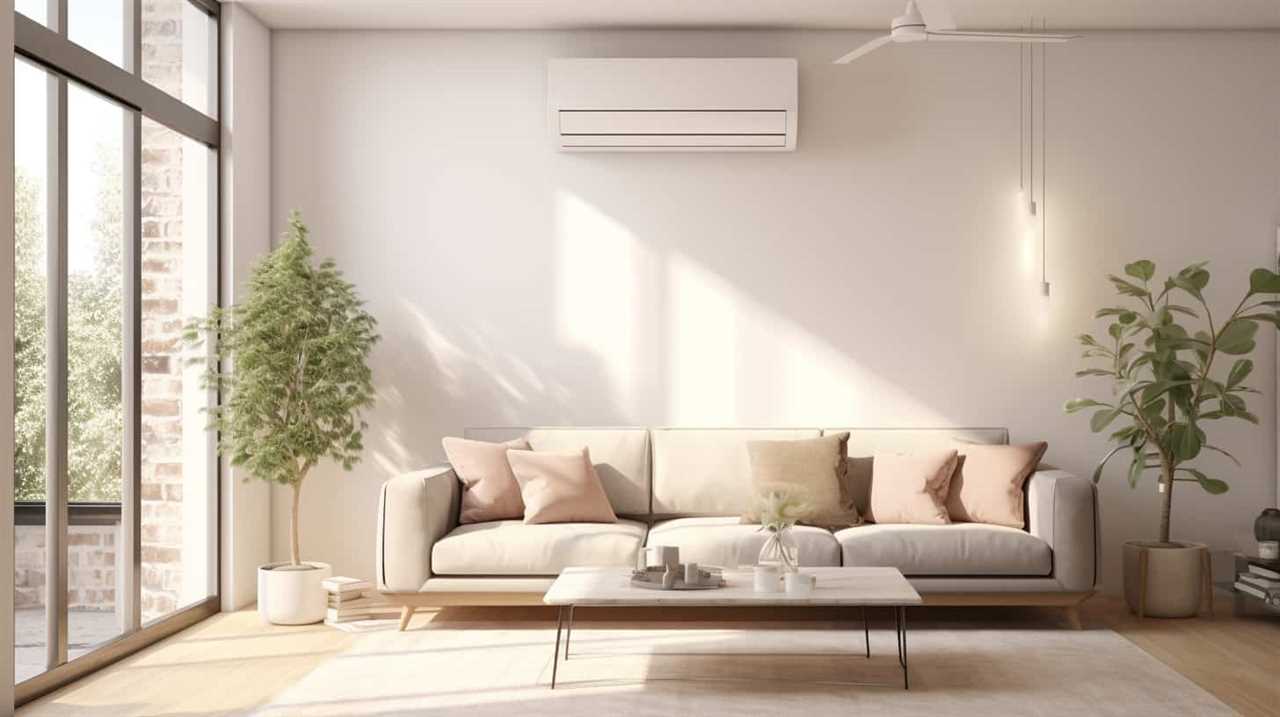
Regularly checking and replacing dirty air filters is crucial to maintain optimal airflow and ensure the efficiency and longevity of your HVAC heat pump system.
Blocked Vents or Registers
To ensure proper airflow and prevent restrictions, we need to address the issue of blocked vents or registers.
Blocked vents can significantly impact the performance of your HVAC heat pump system, leading to poor heating or cooling efficiency. There are several common causes for blocked vents, including furniture placement, debris accumulation, or closed dampers.
Troubleshooting vent obstructions involves a systematic approach. Start by checking each vent and register throughout your home, ensuring they’re clear from any obstructions. Remove any furniture or objects that may be blocking the airflow.
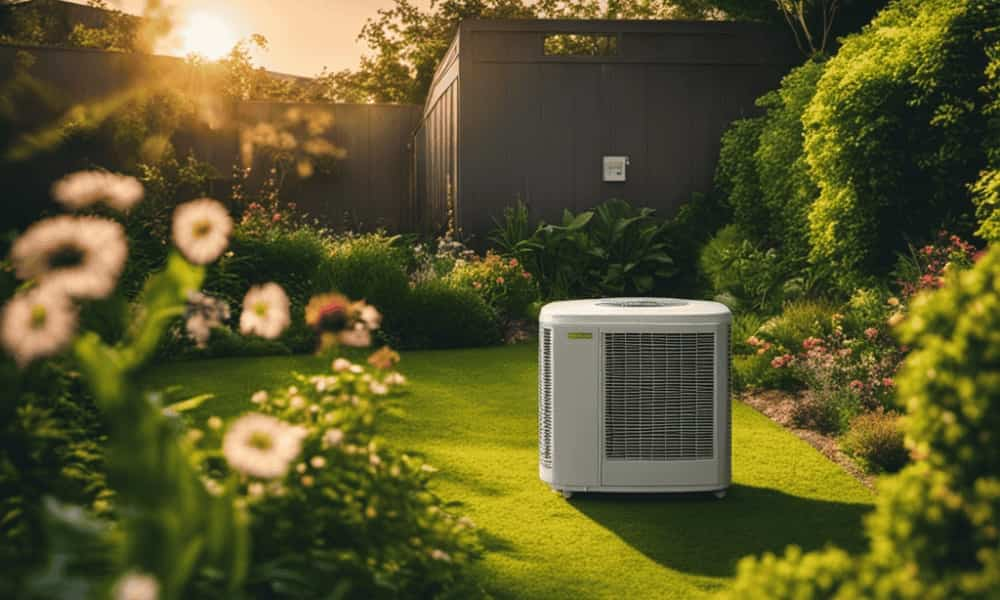
Additionally, inspect the vents for any accumulated dust or debris and clean them if necessary. Finally, make sure that the dampers are open and not restricting the airflow.
Obstructed Outdoor Unit
We must ensure that there are no obstructions or restrictions in the airflow of the outdoor unit for optimal performance. A blocked condenser or frozen coils can severely impact the efficiency and effectiveness of your HVAC heat pump. To prevent these issues and maintain the proper airflow, here are some essential tips:
- Clear any debris, such as leaves or dirt, from the outdoor unit.
- Trim back any vegetation or shrubs that may be obstructing the airflow.
- Check the outdoor unit for any physical obstructions, such as fallen branches or objects.
- Inspect the surrounding area for any potential sources of airflow restrictions, like fences or walls.
Investigating Outdoor Unit Problems
When inspecting outdoor unit problems, we should start by checking for any visible damage or obstructions. This includes examining the fins, coils, and fan blades for any signs of wear, bending, or dirt buildup.
Additionally, it’s crucial to investigate refrigerant leaks as they can lead to decreased cooling efficiency and potential system failure. One way to identify refrigerant leaks is by inspecting the refrigerant lines for any oil or refrigerant stains.

Another common issue with outdoor units is troubleshooting defrost cycle problems. This can be done by checking the defrost control board, defrost thermostat, and defrost sensor for any faults.
It’s also essential to ensure that the outdoor unit is free of ice or snow buildup, as this can affect the unit’s performance.
Troubleshooting Compressor Issues
When it comes to troubleshooting compressor issues in an HVAC heat pump, there are a few common problems that can arise.
One issue is a noisy compressor, which could be caused by loose or worn parts, requiring tightening or replacement.
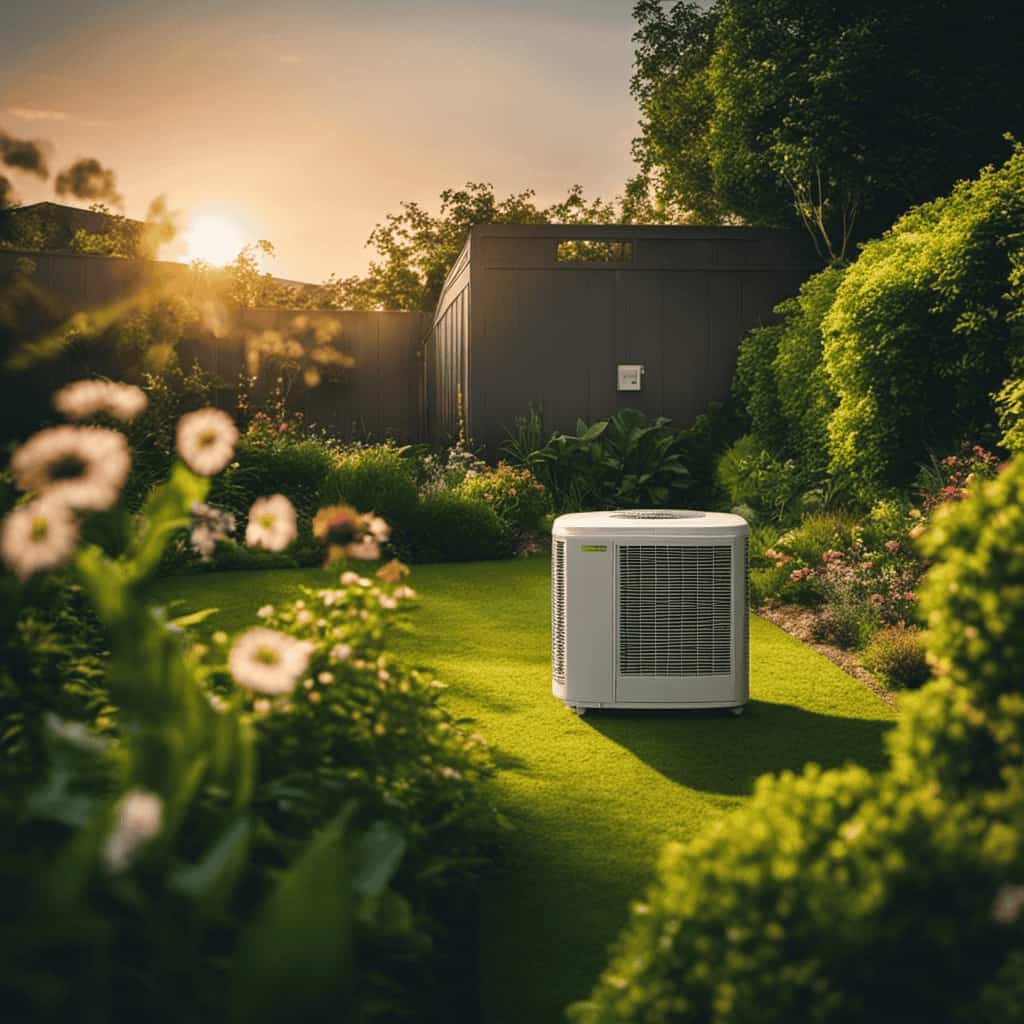
Another problem could be a compressor that isn’t starting, which may be due to electrical issues or a faulty capacitor.
Lastly, compressor short cycling, where the compressor turns on and off frequently, could be caused by refrigerant leaks or a malfunctioning thermostat.
Noisy Compressor Solutions
If you hear a noisy compressor, there are several solutions you can try to troubleshoot and resolve the issue.
Here are some noise reduction techniques for compressor maintenance:
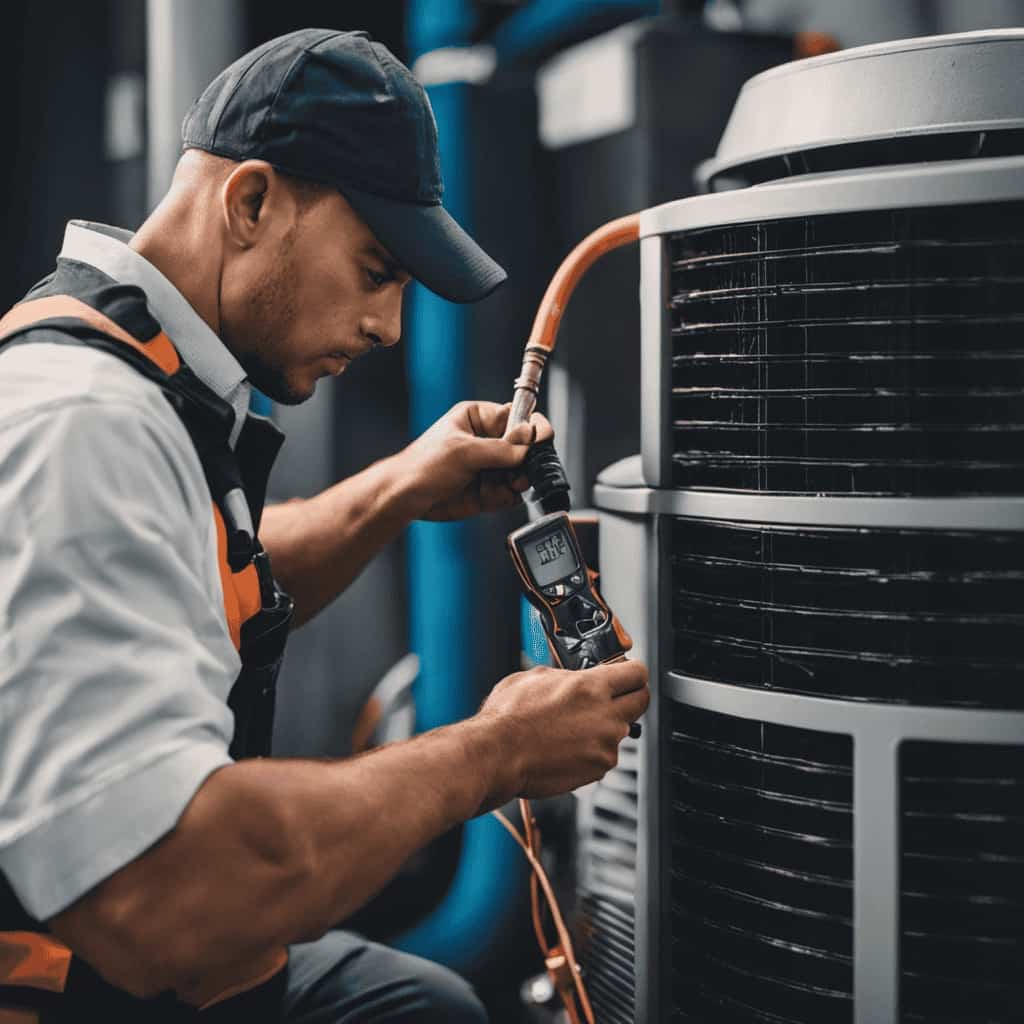
Check for loose components: Inspect the compressor for any loose bolts or screws. Tighten them if necessary to reduce vibrations and noise.
Clean the compressor: Dust and debris can accumulate on the compressor, causing it to work harder and produce more noise. Regularly clean the compressor to ensure optimal performance.
Insulate the compressor: Adding insulation around the compressor can help absorb sound waves and reduce noise levels.
Install vibration pads: Placing vibration pads under the compressor can help minimize vibrations and noise transmission to the surrounding areas.
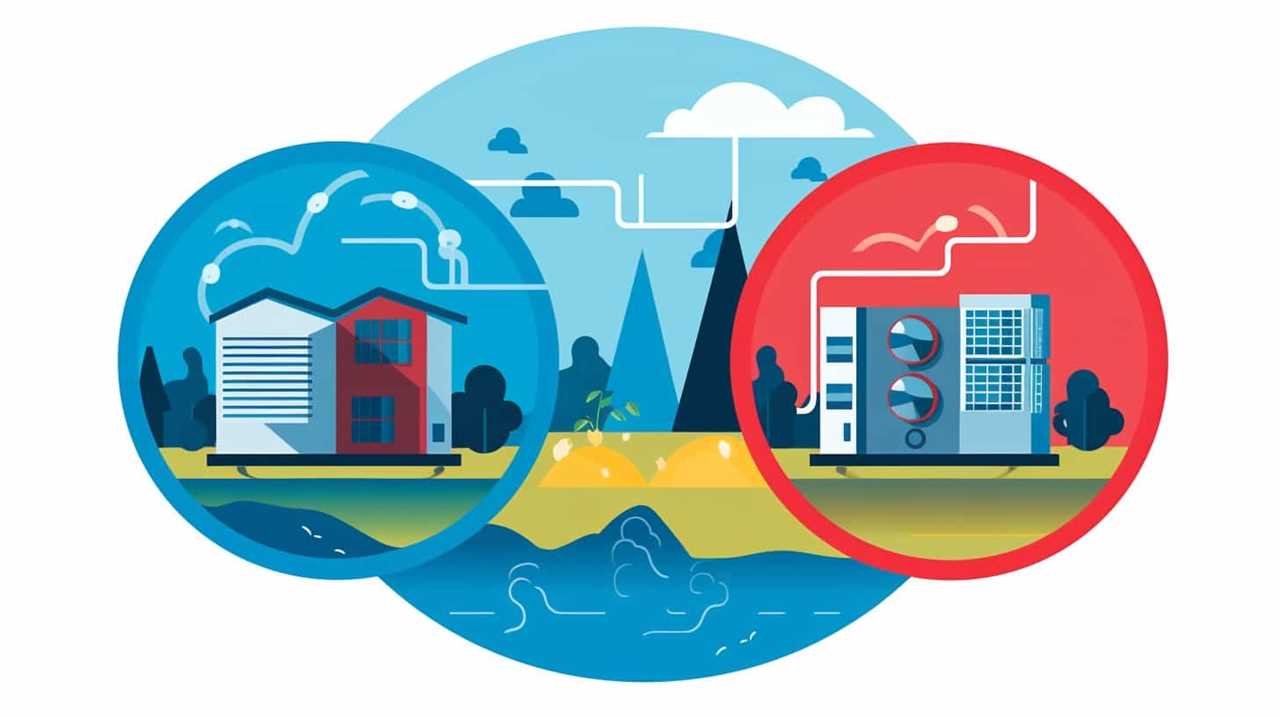
Compressor Not Starting
Have we checked the power supply and circuit breaker to troubleshoot why the compressor is not starting? It is important to ensure that the heat pump is receiving power and that the circuit breaker has not tripped. If the power supply and circuit breaker are functioning properly, we can move on to troubleshooting the compressor itself.
When troubleshooting compressor issues, it is helpful to refer to a table that outlines possible causes and solutions. Here is a 3×3 table that can assist in diagnosing and resolving compressor problems:
| Possible Cause | Solution |
|---|---|
| Faulty capacitor | Replace the capacitor |
| Burned-out motor | Replace the motor |
| Low refrigerant levels | Check for leaks and recharge |
Compressor Short Cycling
To troubleshoot compressor short cycling, we should examine the thermostat settings and the refrigerant levels. Here are some important points to consider when dealing with this issue:
Thermostat settings: Ensure that the thermostat is set correctly and that it isn’t causing the compressor to turn on and off frequently. Incorrect temperature settings or a faulty thermostat can lead to short cycling.
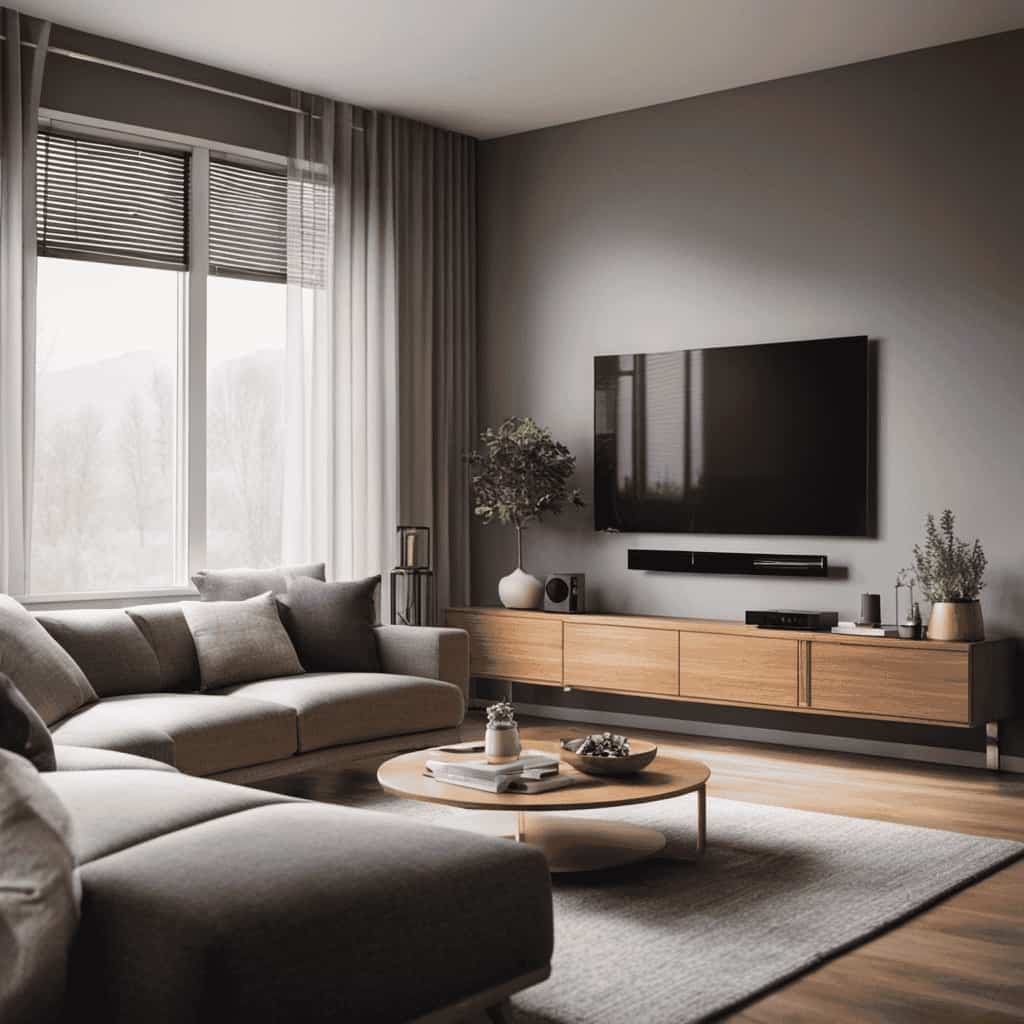
Refrigerant levels: Low refrigerant levels can cause the compressor to overheat, leading to short cycling. Check for any refrigerant leaks and address them promptly. It’s crucial to maintain the proper refrigerant levels for optimal compressor performance.
Compressor overheating: A compressor that’s running too hot can result in short cycling. Inspect the compressor for any signs of overheating, such as excessive noise or a burning smell. If the compressor is overheating, it may require professional attention to prevent further damage.
Refrigerant leak detection: Detecting and repairing refrigerant leaks is essential to prevent compressor issues and ensure efficient heat pump operation. Use leak detection equipment and techniques to identify any leaks and repair them promptly.
Addressing Strange Noises or Odors
We often encounter strange noises or odors coming from our HVAC heat pump. Identifying unusual sounds is crucial in troubleshooting and fixing any underlying issues. Unusual sounds can range from rattling, buzzing, grinding, or squealing noises, which may indicate loose or worn-out components, such as fan blades, motors, or belts. It’s important to inspect these parts and tighten or replace them if necessary.

On the other hand, addressing strange smells requires a different approach. Foul odors, such as burning or musty smells, can be caused by a variety of issues, including dirty air filters, mold or mildew growth, or even electrical problems. Regularly cleaning or replacing air filters and having the system professionally inspected can help resolve these issues and improve the overall air quality in your home.
Testing the Defrost Cycle
During winter months, we can test the defrost cycle of our HVAC heat pump to ensure its proper functioning. The defrost cycle is crucial for removing ice buildup on the outdoor coil, allowing the heat pump to operate efficiently.
Here are some essential steps to troubleshoot and test the defrost cycle:
Check the defrost thermostat: Ensure that it’s functioning correctly and set at the right temperature.
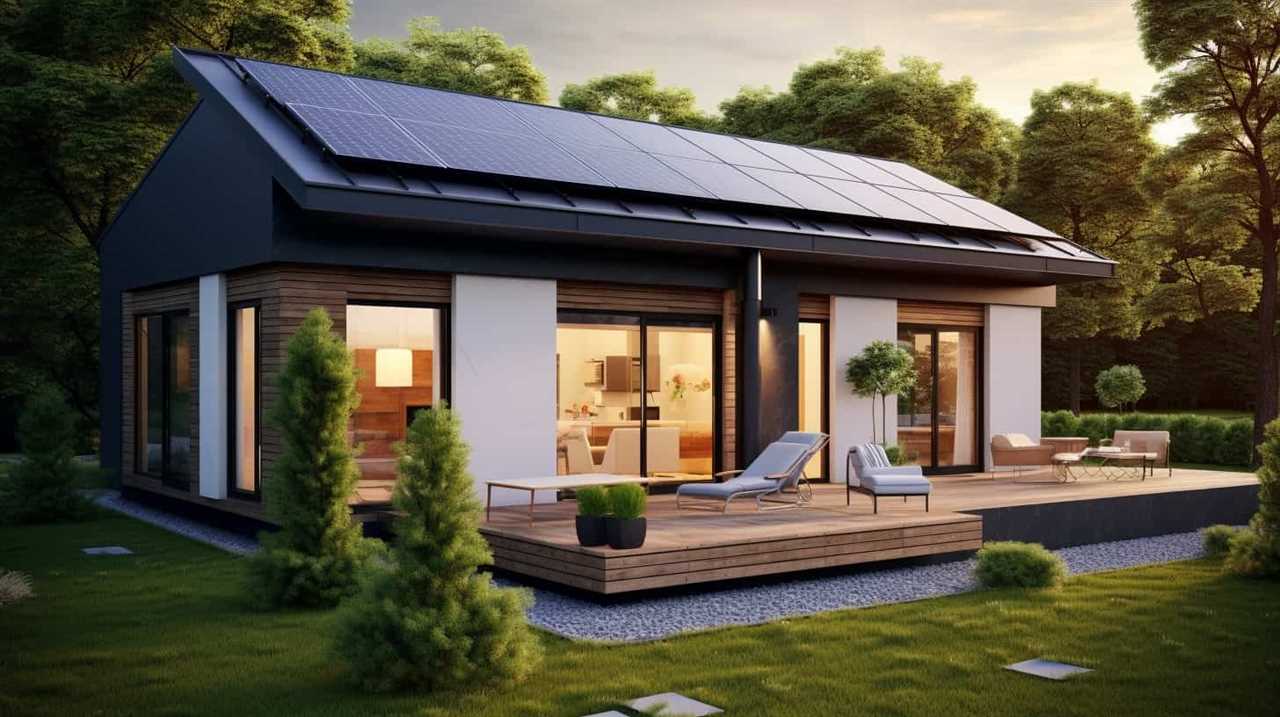
Inspect the defrost control board: Look for any signs of damage or malfunction and replace if necessary.
Test the defrost sensors: Use a multimeter to check if the sensors are reading the correct temperature and replace if faulty.
Examine the outdoor coil: Inspect for excessive ice buildup or blocked airflow, which can indicate defrost cycle issues.
Troubleshooting Heat Pump Cycling On and Off
When troubleshooting a heat pump that is not heating or cooling properly, there are several potential causes to consider. One common issue is a dirty air filter, which can restrict airflow and reduce the unit’s efficiency. Checking and replacing the air filter regularly can help resolve this problem. Another possible cause is a malfunctioning compressor, which is responsible for circulating the refrigerant and facilitating heat transfer. If the compressor is not functioning correctly, it may need to be repaired or replaced. Additionally, inadequate refrigerant levels can also impact the heat pump’s ability to heat or cool effectively. A qualified technician can check the refrigerant levels and recharge the system if necessary. Other potential causes of inadequate heating or cooling include issues with the thermostat, the outdoor unit fan motor, or the ductwork. Troubleshooting these components may involve inspecting and adjusting the thermostat settings, testing the fan motor, and examining the ductwork for leaks or blockages. By addressing these potential issues, we can ensure that the heat pump operates efficiently and provides optimal heating and cooling performance.
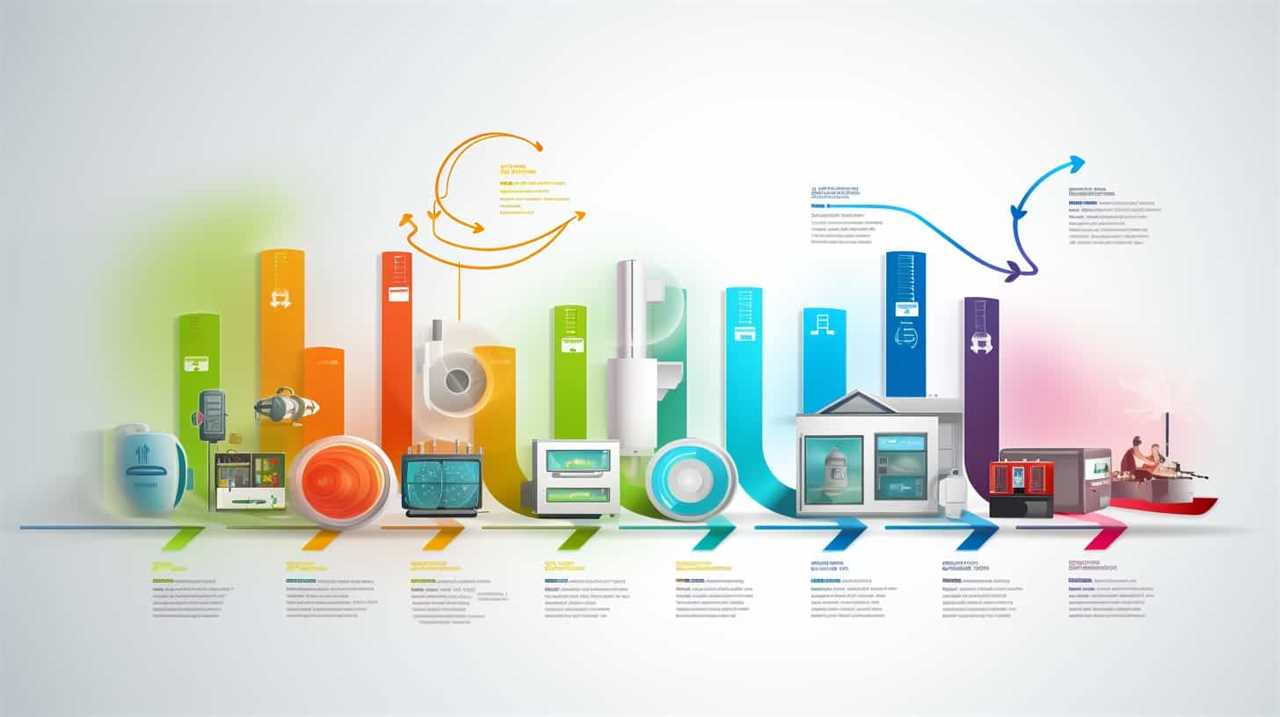
Resolving Issues With Heat Pump Not Heating or Cooling Properly
To properly resolve issues with a heat pump not heating or cooling, it’s important to identify and address the underlying causes. Here are some key steps to take when troubleshooting these problems:
Check the thermostat: Ensure that the thermostat is set to the desired temperature and is functioning properly. Resolving thermostat malfunctions can often solve heating or cooling issues.
Inspect the refrigerant: Low refrigerant levels due to leaks can hinder the heat pump’s ability to heat or cool effectively. Troubleshooting refrigerant leaks and replenishing the levels may be necessary.
Clean or replace air filters: Dirty or clogged filters can restrict airflow, affecting the heat pump’s performance. Regularly cleaning or replacing the filters can help resolve inadequate heating or cooling.

Inspect the outdoor unit: Check for any debris, ice buildup, or obstructions around the outdoor unit. Clearing these can restore the heat pump’s proper functioning.
Seeking Professional Help and Maintenance Tips
If we are unable to resolve the issues with our heat pump after troubleshooting, it is important to seek professional help and follow maintenance tips to ensure proper functioning. Professional maintenance is crucial in order to keep your heat pump running efficiently and to prevent any further issues. HVAC professionals have the expertise and tools necessary to diagnose and fix complex problems that may be beyond our capabilities. They can also provide regular maintenance to keep your heat pump in top shape. In addition to seeking professional help, there are some maintenance tips that we can follow to ensure the longevity of our heat pump. These include regularly cleaning or replacing air filters, keeping the outdoor unit clear of debris, and scheduling annual inspections. By following these troubleshooting techniques and seeking professional assistance when needed, we can ensure the optimal performance of our heat pump.
| Maintenance Tips | Benefits |
|---|---|
| Regularly clean or replace air filters | Improves indoor air quality |
| Keep the outdoor unit clear of debris | Prevents airflow restrictions |
| Schedule annual inspections | Identifies potential issues early |
| Check and clean the condensate drain | Prevents water damage and mold growth |
| Lubricate moving parts | Reduces friction and extends lifespan |
Frequently Asked Questions
Can I Use My Heat Pump as a Primary Heating Source in Extremely Cold Weather?
Yes, you can use a heat pump as a primary heating source in extremely cold weather. However, there are pros and cons to consider. Heat pumps are efficient but may struggle to provide sufficient heat compared to traditional heating systems.
How Often Should I Replace the Air Filters in My Heat Pump?
We should replace the air filters in our heat pump regularly to ensure its proper functioning. By maintaining a consistent air filter replacement frequency, we can prevent dust and debris buildup, improving overall heat pump maintenance.
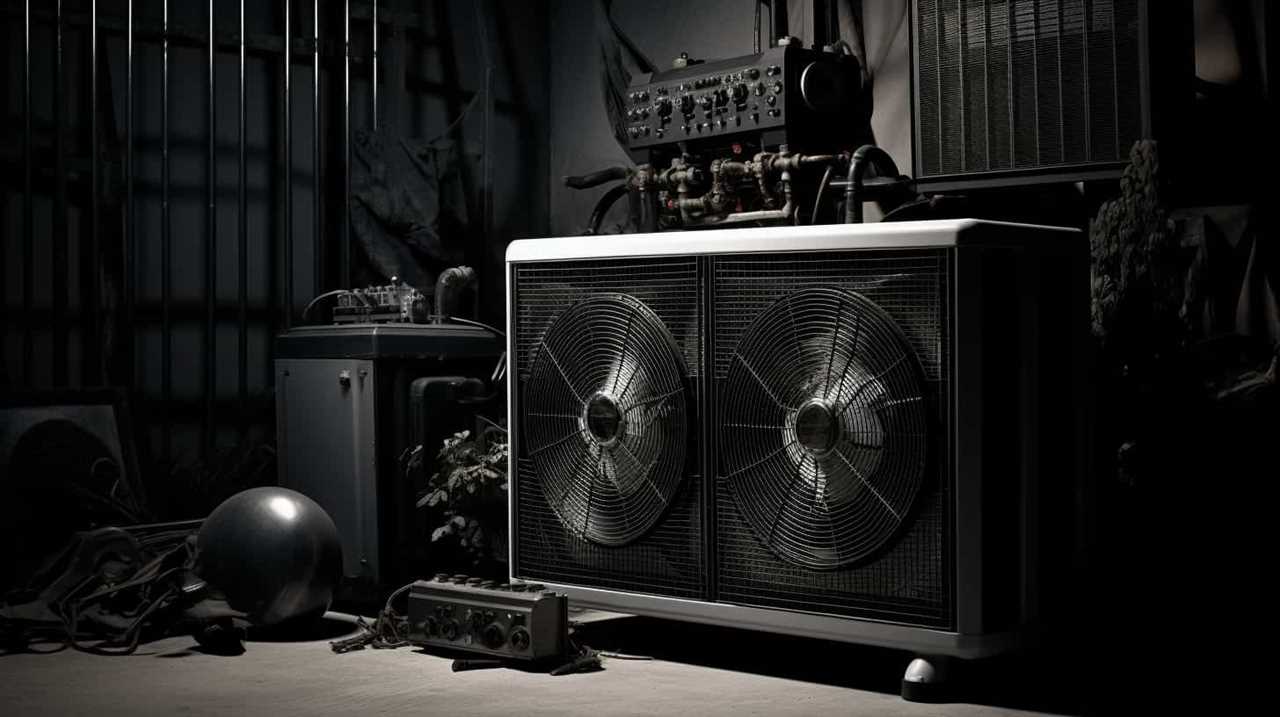
What Should I Do if My Heat Pump Is Blowing Cold Air Instead of Warm Air?
If your heat pump is blowing cold air instead of warm air, there are a few troubleshooting steps we can take. Check the thermostat settings, ensure the outdoor unit is clear of debris, and inspect the refrigerant levels.
How Do I Know if My Heat Pump Is Low on Refrigerant?
If the heat pump is low on refrigerant, signs of leakage may include reduced cooling or heating capacity, hissing sounds, or ice formation. Troubleshooting common heat pump problems requires thorough inspection and professional assistance if necessary.
Is It Normal for My Heat Pump to Make a Clicking Sound When It Starts Up?
Yes, it is normal for a heat pump to make a clicking sound when it starts up. This noise is typically caused by the relay switch engaging and is not a cause for concern. Regular heat pump maintenance can help troubleshoot other noises.
What Are the Key Steps in Troubleshooting an HVAC Heat Pump?
To troubleshoot an HVAC heat pump, follow these key steps. Firstly, check the power supply and ensure it’s connected properly. Next, inspect the thermostat settings and adjust if necessary. Clean or replace air filters to promote proper airflow. Examine the outdoor unit for any debris or obstructions. Lastly, if issues persist, it is advisable to consult a professional troubleshoot hvac heat pump technician for further assistance.
Conclusion
In conclusion, troubleshooting HVAC heat pumps can be a complex task, but with the right knowledge and attention to detail, it can be done successfully.
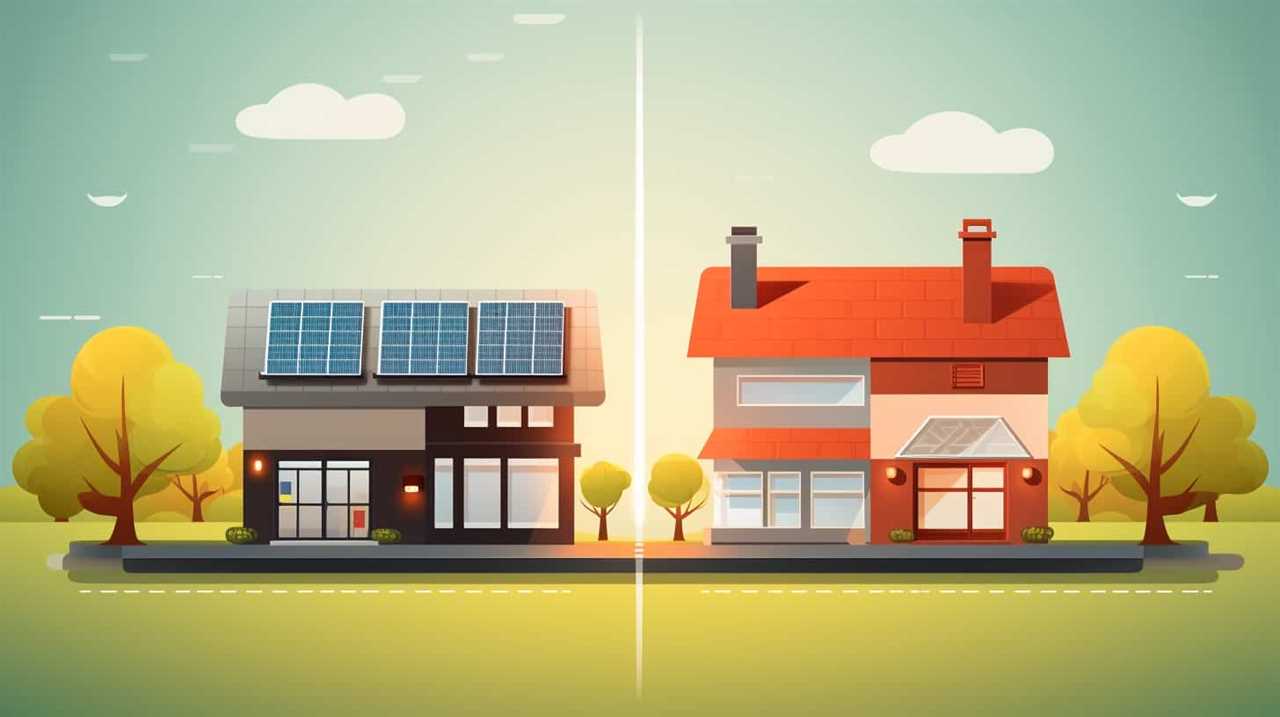
Remember to check for power issues, assess thermostat functionality, clean air filters, evaluate refrigerant levels, and test the defrost cycle.
If you encounter any problems that you’re unable to resolve, don’t hesitate to seek professional help.
Just like a well-tuned heat pump, a little maintenance goes a long way in keeping your home comfortable and efficient.


